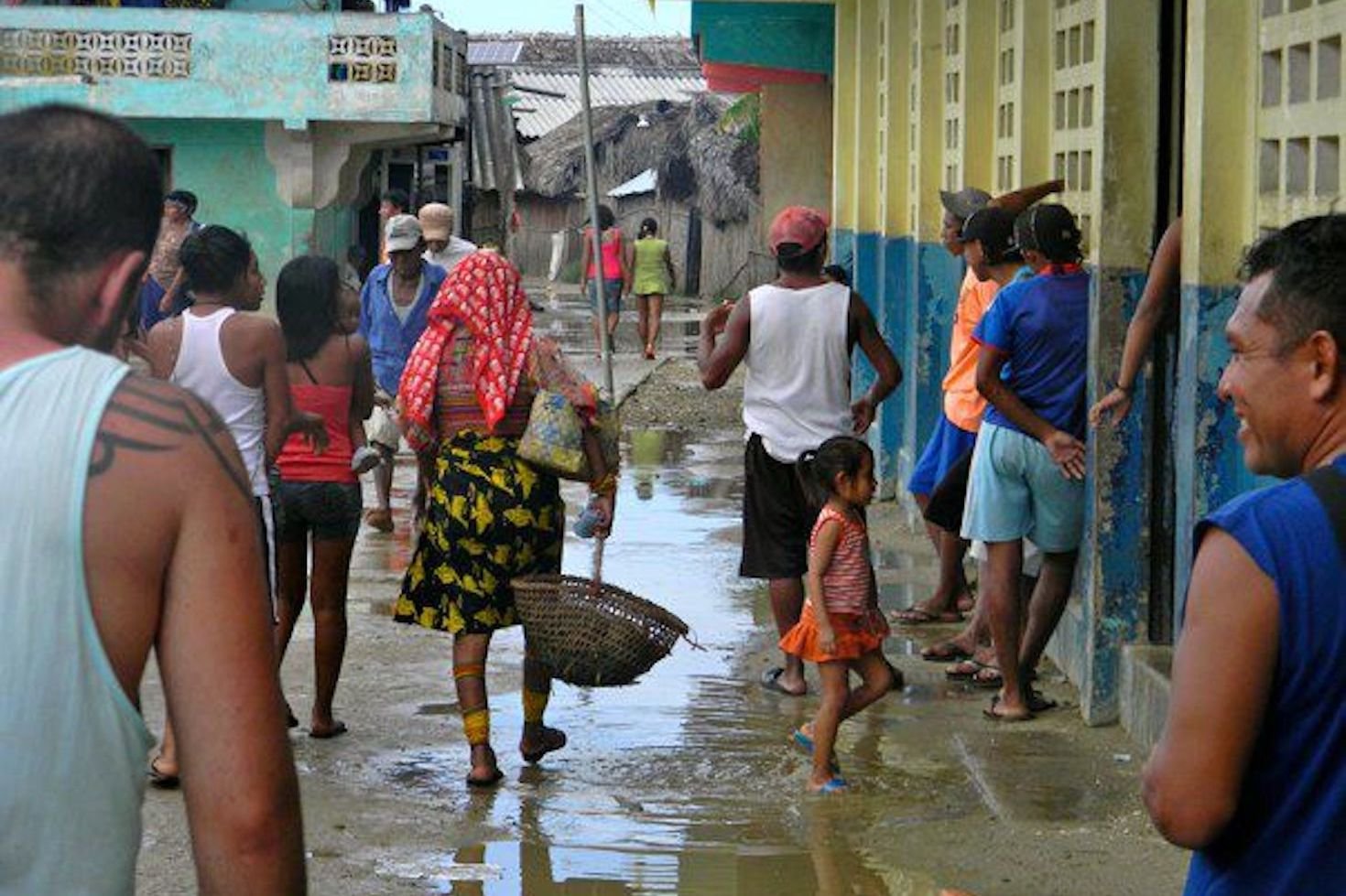The personal path to sustainability
This piece was originally published in GreenBiz on August 23, 2021.
For many working in corporate sustainability, the past months have been a seesaw of emotional highs and lows.
On the one hand, environmental, social and governance (ESG) issues have entered a golden age of interest from investors, customers, employees and even policymakers. ESG skills and services are in such high demand that there is an unprecedented war for talent.
On the other hand, the devastation of the climate crisis has never been more present or clear. July was the hottest month on record — with extreme heatwaves in the American West, Eastern Europe and Asia. Devastating flash floods hit Germany, Belgium and China. Destructive wildfires rage in California and Utah, as well as in Europe. And along came this month’s Intergovernmental Panel on Climate Change report, which issued a "Code Red" for humanity. A lack of meaningful climate action means a generation of extreme weather is already locked in, and we have precious little time left to avert an even worse climate catastrophe.
No one can single-handedly solve the climate crisis — yet for corporate sustainability professionals, every negative headline feels like a personal setback. When it comes to advancing ESG, progress is slow and, at times, imperceptible. Burnout is a real threat.
If we are to elevate sustainability in the world, we also must discover it within ourselves.
Managing ‘climate anxiety’
Climate anxiety is palpable — by now, many have had some kind of personal run-in with the climate crisis. And exposure to climate-related natural disasters can lead to anxiety, depression and even post-traumatic stress disorder, according to the U.S. Global Change Research Program.
A 2020 poll from the American Psychiatric Association found that more than two-thirds of Americans (67 percent) are somewhat or extremely anxious about the impact of climate change on the planet, and more than half (55 percent) are somewhat or extremely anxious about the impact of climate change on their own mental health. Meanwhile, about 40 percent of Americans feel "disgusted" or "helpless" about the climate crisis.
You're not helping anyone when you're pouring from a completely empty cup, so know that it's OK to take a moment to grieve the news and do something to take care of yourself such as close your laptop to take a walk outside in nature.
One strategy for dealing with climate anxiety is to acknowledge and accept it. "For me, I’ve found it really helpful to take time and sit with negative news like the IPCC report," said Charles Neidenbach, sustainability solutions manager at Office Depot. "I went through feelings of disappointment, frustration, sadness and hopelessness. This isn’t the first time I’ve grieved about the climate crisis, but it was the first time I’ve sat in that grief and allowed myself to stay there for an extended period of time."
Consider treating climate anxiety as you might any other form of anxiety. Some tactics for managing anxiety include taking a step back from the problem and practicing yoga or meditation, eating healthy, limiting alcohol and caffeine, making time for exercise and getting enough sleep.
"This is inherently long-term work, and for so many impact professionals — myself included— it's deeply personal," said Lis Best, an impact-focused executive coach. "You're not helping anyone when you're pouring from a completely empty cup, so know that it's OK to take a moment to grieve the news and do something to take care of yourself like close your laptop to take a walk outside in nature."
Looking for ‘the helpers’
Achieving personal sustainability means striking the right balance of idealism and realism. Some corporate sustainability professionals are cautious optimists, while others are reformed cynics — with some such as myself falling somewhere in the middle. What unites us is a stubborn predilection for action.
"The negative news can sometimes feel overwhelming, but despair leads to inaction and only in action can we have hope," said Peter Jones, head of sustainability analytics and impact at IKEA.
"I know I can't give in to my despair or anger on anything anymore," said Andi Trindle Mersch, vice president of coffee and sustainability at Philz Coffee. "I have to get up, stay healthy and soldier on every day. My kids — all kids deserve a safe, peaceful place to live."
"The latest IPCC report wasn’t a directive to throw in the towel but rather a sobering call to action," said Davida Heller, senior vice president, sustainability and ESG at Citi. "Thinking about what lies ahead of us is sometimes daunting, but I see addressing the climate crisis and sustainability as our collective responsibility and I wouldn’t want to be doing anything else."
"Inaction and hopelessness will lead us to a bleak future," said Alon Rotem, chief legal officer at thredUp. "At thredUP, we take pride in doing the hard things — so instead of being discouraged by negative news around the climate crisis, such as IPCC’s new report, I use it as inspiration to show up to work each day and give 120 percent to the changes I want to see."
In the face of personal, professional or global tragedy, it’s comforting to think about Fred Rogers’ famous advice: "When I was a boy and I would see scary things in the news, my mother would say to me: ‘Look for the helpers. You will always find people who are helping.’"
As a corporate sustainability professional, I find it both comforting and inspiring to be surrounded by helpers.
Remembering your ‘ESG personal legend’
As for me, after reading the new IPCC report two days after being smoked out of Lake Tahoe from the largest wildfire in California history, I paused to think about my "ESG personal legend." In Paulo Coehlo’s novel "The Alchemist," he describes a "personal legend" as being an individual’s calling — which awakens a deep desire and passion to live with a sense of purpose for something greater than yourself.
About a decade ago, Coehlo’s book compelled me to leave my first corporate job out of college to spend a year volunteering teaching in Latin America. At the time, I had little idea of what I wanted to do with my life beyond "be a writer." That is until one fateful day while visiting a Guna village in the San Blas Archipelago off the coast of Panama, I learned that the islands’ inhabitants would soon become climate refugees due to rising sea levels. For the first time in my life, I saw the connection between social and environmental justice — and it made me come alive.
While I had always wanted to be a writer, I had finally found a reason to write. My ESG personal legend: to use the power of the pen — as well as speaking, advocating, partnering, strategizing and every other skill I can cultivate — to help people such as the Guna by addressing the climate crisis. Shortly thereafter, I returned home to the United States and discovered corporate sustainability as a career path. Over the past 10 years, my ESG personal legend has kept me focused and motivated through every success and setback.
Take a moment and reflect on your own ESG personal legend. What is it that makes you come alive? Write it down, put it in your desk drawer and during your darker moments, take it out to read and remember why you do what you do.
Now, more than ever, we face a difficult road to a prosperous future — and each day we fail to act on climate steepens our slope. Success in reaching our destination is far from certain, but failure also isn’t an option. The stakes simply are too high.
None of us will get there alone. Collectively, we must cultivate personal sustainability so that we can be there for each other when it counts. You can’t save the world — neither can I — but together, we might just pull it off.


